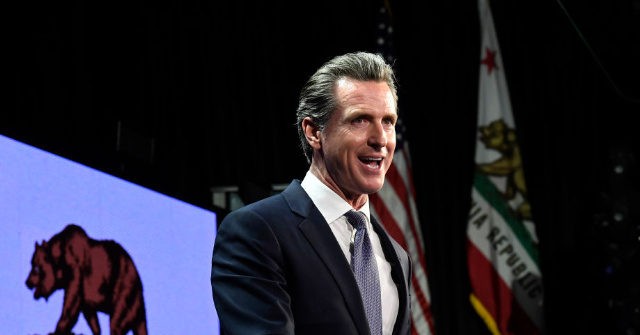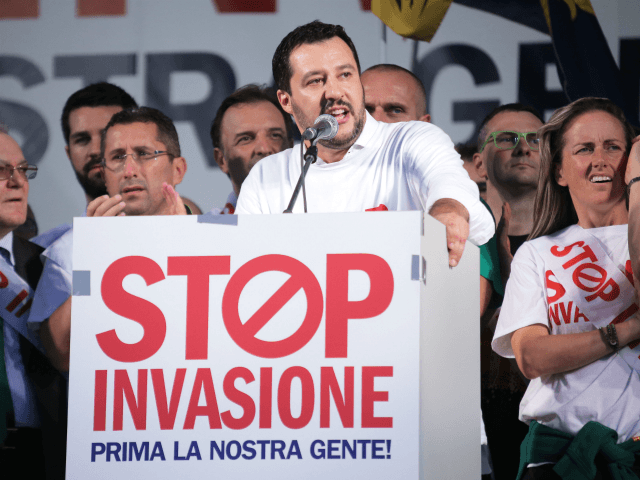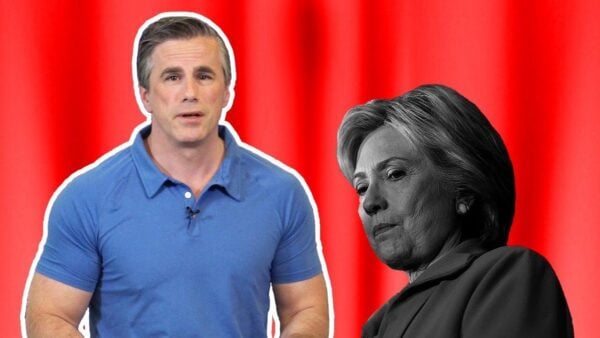
The nation’s second-largest bank decided to stop lending money to companies that run private prisons and detention centers. Bank of America (BOA) will do so after meeting contractual obligations now in effect.
“We have decided to exit the relationship’’ with companies that provide prison and immigration-detention services, Vice Chairman Anne Finucane said Wednesday in an interview. “We’ve done our due diligence that we said we would do at the annual meeting, and this is the decision we’ve made.’’
The move followed a review by the bank’s environmental, social and governance, or ESG, committee, which included site visits and consultation with clients, civil rights leaders, criminal justice experts and academics. The Charlotte, North Carolina-based lender also met with its internal Hispanic and black leaders.
In other words, another major corporation caved to the open borders crowd. It will probably not be a surprise that the two largest private prison companies saw their stocks fall by more than 4% after the announcement was made. A spokesman for one of the companies, CoreCivic, said that the company was misrepresented and the decision is all about politics.
“We care deeply about doing business in an ethical, responsible way,” he said in an emailed statement. “This was clearly not a fair, transparent and genuine dialogue about corrections and detention.”
Bank of America is following in the footsteps of JPMorgan Chase & Company and Wells Fargo & Company. Elizabeth Warren tweeted last week that she has a plan to get rid of private prison companies. BOA’s Finucane admits it’s a political move. “The broader issues are the need for reforms in the criminal justice system and immigration.”
While the companies run centers on behalf of U.S. Immigration and Customs Enforcement, they’ve said they don’t operate facilities that house unaccompanied minors. Detention centers have become a flash point in recent weeks amid reports of substandard conditions at facilities for migrant children. Warren also criticized Caliburn International Corp. for profiting off what she called the Trump administration’s “inhumane” immigration policies.
“The GEO Group has never managed any facilities that house unaccompanied minors, nor have we ever managed border patrol holding facilities,” GEO Group Chief Executive Officer George C. Zoley said in a statement.
This decision by BOA falls in line with the moment during the second Democrat debate Thursday when all of the candidates on stage raised their hand in approval when asked if entering the United States without papers should be a civil, not a criminal offense. They have demagogued the detention of illegal aliens. Remember Beto O’Rourke’s involvement in the closing of the Tornillo facility for unaccompanied minors, mostly teenagers? I wrote about that in January. There is never an alternative to providing shelters or even tent cities for the detainees offered up by the critics. The Democrats want an open southern border and no enforcement of immigration laws. This is particularly unfortunate with the ever-growing humanitarian crisis on the border.
For BOA, the decision process began in April during its annual meeting. Activists demanded the company put an end to funding private prisons and detention centers. The activists are pleased with themselves because, you know, Orange Man bad.
On Wednesday, Bank of America did exactly that, distancing itself from a sector that has triggered protests over its links to the Trump administration’s immigration policy and concerns about detention center conditions. Hector Vaca, one of the activists at the April annual meeting, declared victory.
Next, he hopes to get SunTrust Banks Inc (STI.N) to cut ties with private prisons. SunTrust did not respond to a request for comment.
In the past, companies had the luxury of taking a wait and see approach to demands of political activists. In Trump’s America, that is no longer an option. Now political activists can stir up the outrage machine on social media immediately and companies are overwhelmed by the attacks. So, they cave.
The rise in activism accompanies a surge in ESG investing, or investing based on environmental, social and governance factors. Morningstar estimates funds that invest according to non-economic guidelines managed $1.2 trillion at the end of last year.
It has prompted companies to disclose more about how, and with whom, they do business and tackle issues they might have tried to evade in the past.
The corporate world is changing with the rise of millennials in the work force. Personal politics of employees and investors is placed above practical solutions.
“Historically, we’ve relied on companies to tell us about their ESG performance, but that doesn’t work anymore,” said Witold Henisz, a professor of management at the University of Pennsylvania’s Wharton School.
Younger generations, investors themselves and equipped with more access than ever to information about companies, are at the forefront of a more transparent, activism-fueled corporate universe, he said, stressing the importance of data when it comes to ESG investing.
Millennials are “even willing to take lower wages if they feel like a company has a strong social purpose,” Henisz said.
Here’s a closing question – How does shutting down housing facilities help the people crossing the border? How does it ease the chaos on the border if facilities are being shut down and limiting the options for those who are charged with finding places for illegal aliens to stay while their immigration claims or asylum claims are being processed? Catch and release is not an acceptable answer, certainly not for the cities and towns affected by sudden arrivals of large groups of illegal aliens. This is a public safety issue and a national security issue. It’s time to stop playing games during a humanitarian crisis.
The post Bank of America ends funding for companies running detention centers appeared first on Hot Air.
via Hot Air
Enjoy this article? Read the full version at the authors website: https://hotair.com






